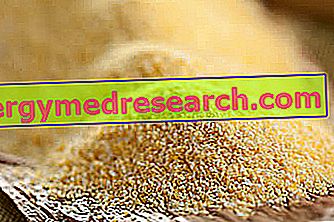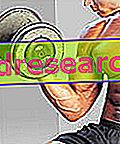Definition
Hyperventilation consists in increasing the frequency of breathing in conditions of rest; consequently, the amount of carbon dioxide eliminated with the breath exceeds that produced by the body.
Hyperventilation should not be confused with hypernea, a similar condition but linked to an acceleration of metabolism (eg increase in the rhythm and depth of breathing during a physical activity). In the latter case, in fact, the increase in ventilation is appropriate because it compensates for the increased production of carbon dioxide during physical activity.
If the subject starts breathing heavily in rest conditions (hyperventilation can be voluntary or involuntary depending on the case), there is a massive increase in oxygen in the blood and a noticeable reduction in carbon dioxide (hypocapnia); all this is reflected in the blood pH, which increases (respiratory alkalosis). If the hyperventilation is prolonged for a long time, these modifications cause a contraction and a stiffening of the muscles, accentuating the feeling of suffocation. In some cases, dyspnea is of such intensity that it is comparable to asphyxia.
Hyperventilation may be accompanied by agitation, palpitations, chest pain, dizziness, blurred vision, tingling in the limbs, a feeling of lightheadedness and syncope. Hyperventilation can occur in physiological conditions (for example: reduced air pressure at high altitudes) or pathological conditions (head trauma, infections, metabolic acidosis, severe respiratory and cardiovascular disorders). Furthermore, hyperventilation is inserted in contexts of emotional stress, anxiety, panic attacks and mood disorders. When it occurs, you can ask the subject to breathe in a paper bag (to increase the level of carbon dioxide) until the resolution of the crisis. If the person becomes cyanotic, instead, it is necessary to accompany her urgently to the emergency room.
Possible Causes * of Hyperventilation
- Metabolic acidosis
- Respiratory allergies
- Anxiety
- Asthma
- Aspergillosis
- Panic attack
- Motion sickness
- Pulmonary embolism
- Heart attack
- Heart failure
- Pneumonia
- Heart failure
- Sepsis
- Septic shock
- Reye syndrome



